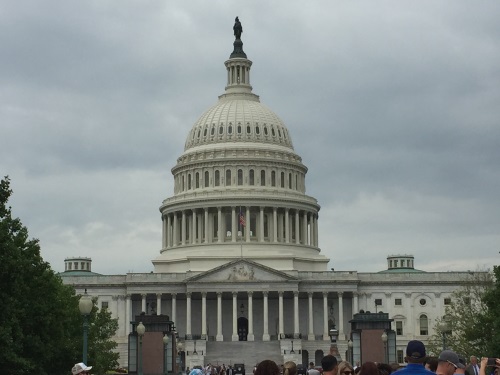On Nov. 21, Rep. John Shimkus, R-Ill., and Rep. Bill Flores, R-Texas, released what they dubbed a “discussion draft” of legislation aimed at revising the renewable fuel standard or RFS established more than a decade ago: a bill called the 21st Century Transportation Fuels Act.

“I’ve been engaged in the biofuel debate my entire career in Congress,” Rep. Shimkus noted in a joint statement. “In this Congress – through three stakeholder roundtables, five subcommittee hearings, and countless other meetings and conversations – my goal was to look beyond just the RFS to comprehensively reshape federal transportation fuel policies in a way that could provide more value to consumers and more certainty to industry stakeholders.”
Rep. Flores said “much has changed” for vehicles and fuels since Congress established the RFS as part of the Energy Policy Act of 2005 and then expanded it via the Energy Independence and Security Act of 2007.

“We have learned from robust stakeholder input through hearings, roundtables and meetings, that higher octane fuels can bring increased fuel economy and performance for next generation engines,” Rep. Flores noted. “Since ethanol is one of the lowest-cost sources of octane in many areas of the country, a transition from the RFS beginning in 2023 to a national octane specification creates new market opportunities for biofuel producers and gives certainty to refining stakeholders. Most importantly, the draft legislation preserves consumer choice and optimum fuel and vehicle costs for more efficient transportation for future decades.”
“The draft legislation we are sharing today enables a transition to 21st century vehicle drivetrains by bringing together both new ideas and technologies as well as long-sought reforms to existing policies,” added Rep. Shimkus. “This sets the stage to modernize federal polices and deliver a new generation of more efficient and cost-effective vehicles and engines and fuels for American consumers. We appreciate the stakeholders who have engaged in this effort and look forward to continuing to improve upon the policies and legislative language we’ve put forward for consideration and discussion.”
A policy paper issued by the Federal Highway Administration 10 years ago noted that the RFS would change the composition of fuels used by state DOT motor vehicles and equipment, while the Environmental Protection Agency issued new reports and rules in support of such fuel blends earlier this year.
 Nation
Nation


